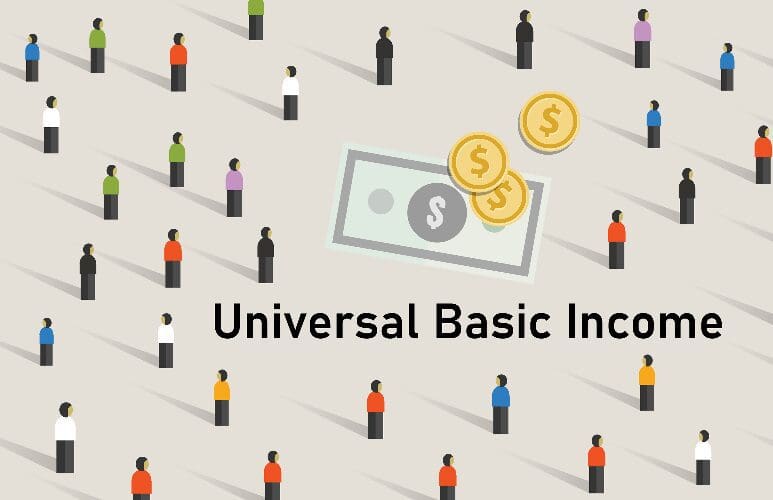By: Paul Albani-Burgio.
See original post here.
A divided Palm Springs City Council voted Thursday to provide $500,000 more for a guaranteed basic income program that would provide monthly payments to residents with very low incomes.
Mayor Lisa Middleton and Councilmember Dennis Woods voted against giving the project city money.
The funds were requested by DAP Health and Queer Works, two local organizations seeking to launch a pilot program that would provide monthly stipends of $800 to 180 residents for 18 months.
While the pilot program initially focused on providing funds to transgender and non-binary residents, anyone making under $16,600 a year, regardless of gender identity, could now be eligible.
The organizations are seeking a $2 million grant from the state to provide the bulk of the funding for the pilot. The state is making $35 million available to organizations and cities to create their own guaranteed income program pilots as part of a first of its kind initiative.
The funds from the city would provide half of the 50% match required to apply for the state grant. DAP Health will provide another $500,000. Applications are due to the state by Sept. 6.
Guaranteed income programs provide regular “no strings attached” payments. Proponents argue that can effectively address poverty, perhaps better than other efforts that come with more rules.
How it would work
Anyone who lives in Palm Springs, makes less than $16,600 annually and is enrolled in services from either Queer Works or DAP Health will be eligible to receive the funds, Queer Works CEO Jacob Rostovsky told the council Thursday.
Queer Works’ services focus on the LGBTQ community, while DAP Health provides a broad range of health services to about 9,000 people annually, according to its website.
Grant recipients will receive additional support services, including medical care, mental healthcare, wellness, transportation and benefits counseling.
If the grant is not approved by the state, the two organizations will produce a smaller-scale pilot program using their own funds and the city money.
The nonprofits’ plan says that if they get the whole $3 million, about $2.6 million will be used for the payments.
The budget also includes $318,000 for staffing costs, $86,000 for research and evaluation services, and $4,000 for participant engagement related services. The organizations also said they will provide about $1.6 million in pro bono services beyond the $3 million in cash.
The $500,000 was less than the $900,000 the organizations had previously suggested they would request from the city.
Council debate
Councilmembers Christy Holstege, Grace Garner and Geoff Kors, who provided the three votes in favor of moving forward, lauded the planned pilot program and the opportunity for the city to take part in it.
Holstege called it a great opportunity to leverage city funds to get an additional $2.5 million invested in Palm Springs, while Kors said it would test the effectiveness of programs that provide money to people without the layers of bureaucracy typically involved in other types of public assistance.
Garner praised the program because it will allow the recipients to determine what to spend the money on, rather than having it dictated for them the way other public programs often do.
“People often think that we should be telling others how they can spend their money, but the reality is that we need to make those decisions for ourselves and we are the ones who are most capable of deciding what’s best for us,” Garner said.
Middleton said she was voting against no because she did not believe guaranteed income programs will be able to scale up enough to provide effective and viable long-term solutions for poverty.
Woods, meanwhile, said he thinks the city is already spending big on services for people in poverty, including the homeless navigation center that’s under development. Given that, he said, the city should not prioritize providing so much funding that would benefit a relatively small group of people.
“We have a ton of people dying in accident deaths on our streets and we’ve only allocated $500,000 to really address that,” he said. “And here we are addressing $500,000 to a small group of people.”
The vote means that the city will be allocating a total of $700,000 to the program. In March, the council voted to provide $200,000 to the organizations to plan and design the program and put together the application to the state.
The council voted 4-1 in favor of providing that first allocation, with Woods voting yes but suggesting he would not support additional funds. Middleton, who is transgender, voted no and voiced largely the same concerns then she did Thursday. At the time, the program was planned to be limited to transgender and nonbinary residents.
Palm Springs is the second Coachella Valley city to approve allocating funds to a guaranteed income program in as many days. On Wednesday, the Coachella City Council unanimously approved a basic income program for low-income immigrant families living in the city.
Correction: A previous version of this story misstated the final eligibility criteria for the program adopted by the council. Those criteria limit eligibility to Palm Springs residents.
Paul Albani-Burgio covers breaking news and the City of Palm Springs. Follow him on Twitter at @albaniburgiop and via email at paul.albani-burgio@desertsun.com.




















